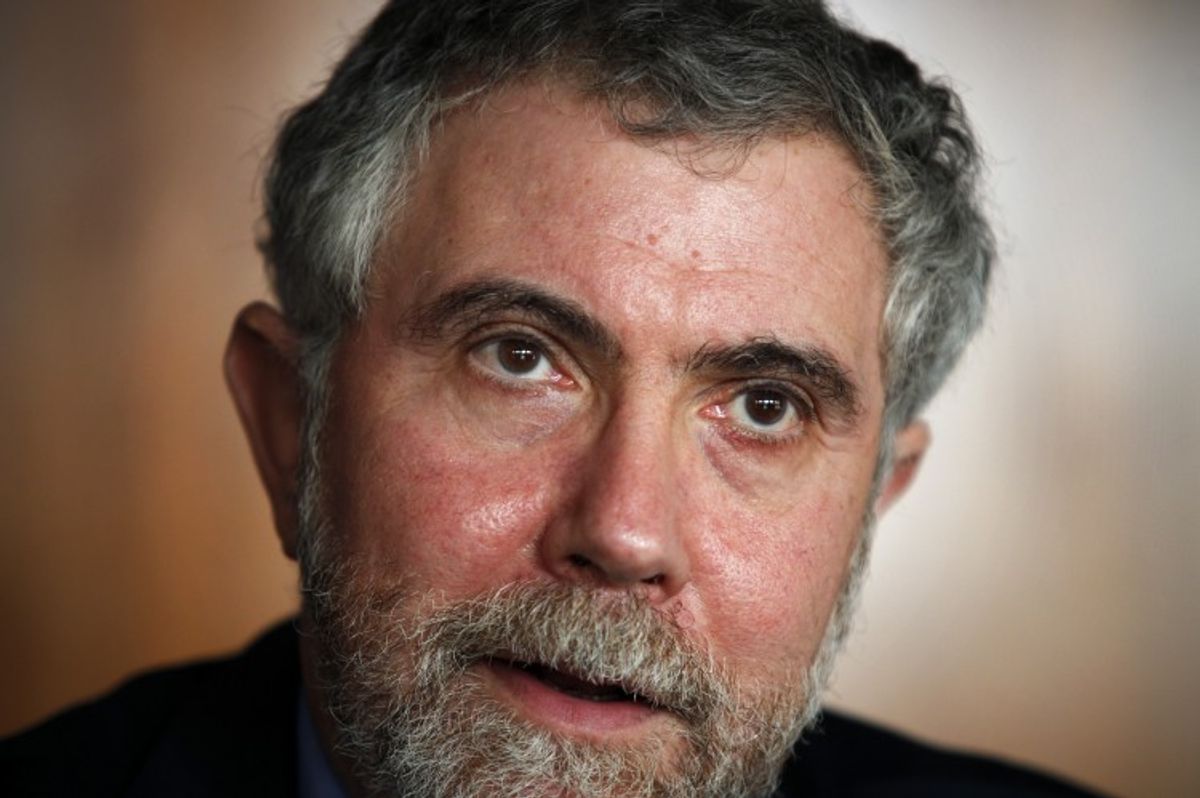In his latest column for the New York Times, award-winning economist and best-selling author Paul Krugman has a warning to Americans everywhere: If we're not careful, we may end up living in an oligarchy much sooner than we think. And we'll have Republicans to thank.
"America’s nascent oligarchy may not yet be fully formed," Krugman writes, "but one of our two main political parties already seems committed to defending the oligarchy’s interests."
For proof of the GOP's fealty to the interests of the super-rich, Krugman turns back the clock to the George W. Bush years, focusing particularly on that president's signature tax cuts. "It’s generally understood that George W. Bush did all he could to cut taxes on the very affluent," Krugman writes. "It’s less well understood that the biggest breaks went not to people paid high salaries but to coupon-clippers and heirs to large estates."
According to Krugman, Republicans' focus on protecting the interests of massive, inherited wealth hasn't abated in the post-W. era. Citing a favorite target, Krugman notes that former vice-presidential candidate Paul Ryan's so-called road-map budget plan would strip away taxes on nearly every form of what the economist calls "unearned income."
"Under this plan," Krugman warns, "someone living solely off inherited wealth would have owed no federal taxes at all."
Having established the what of the GOP's oligarch-friendly policies, Krugman next turns to the why:
Why is this happening? Well, bear in mind that both Koch brothers are numbered among the 10 wealthiest Americans, and so are four Walmart heirs. Great wealth buys great political influence — and not just through campaign contributions. Many conservatives live inside an intellectual bubble of think tanks and captive media that is ultimately financed by a handful of megadonors. Not surprisingly, those inside the bubble tend to assume, instinctively, that what is good for oligarchs is good for America.
As I’ve already suggested, the results can sometimes seem comical. The important point to remember, however, is that the people inside the bubble have a lot of power, which they wield on behalf of their patrons. And the drift toward oligarchy continues.



Shares